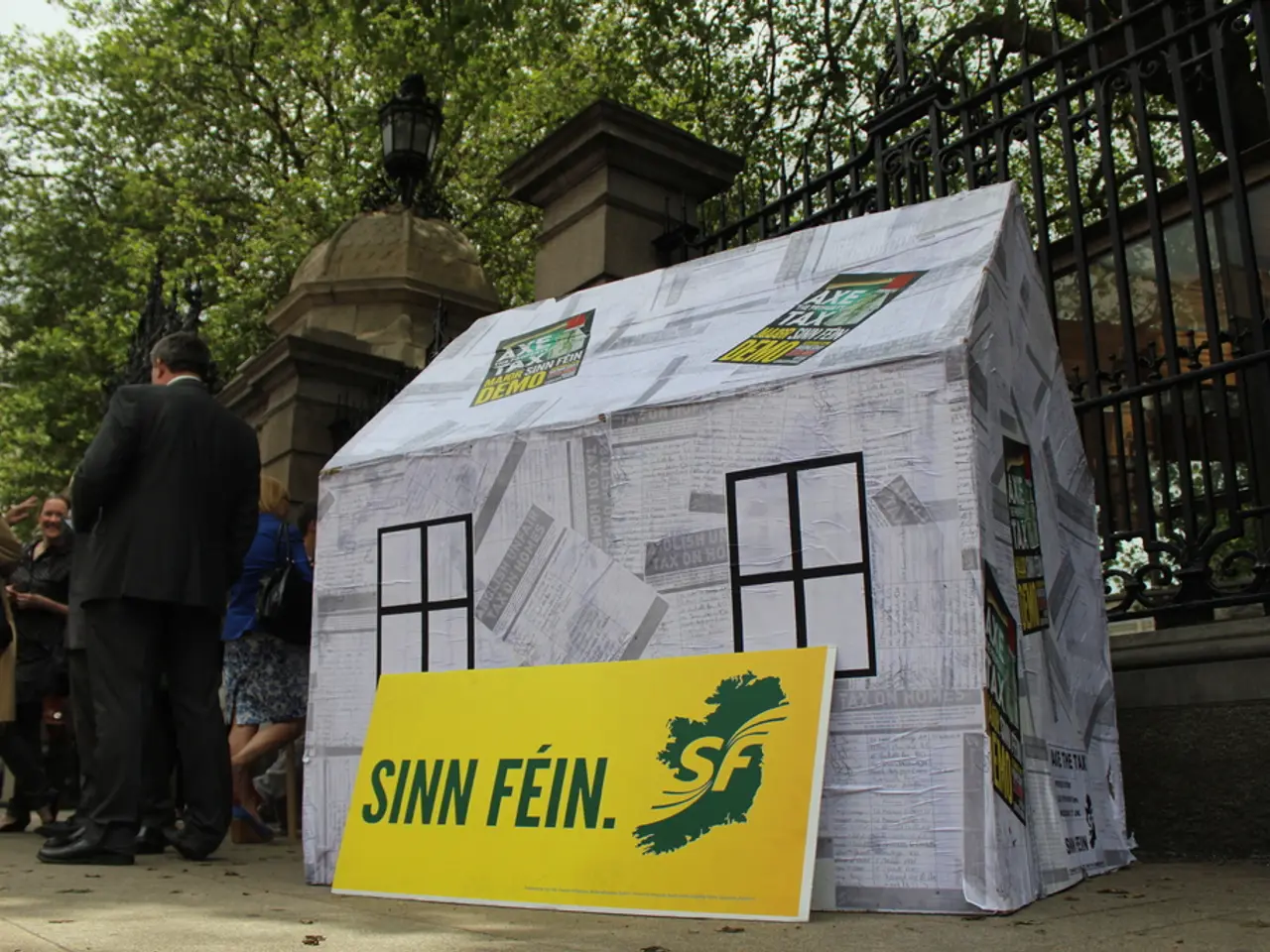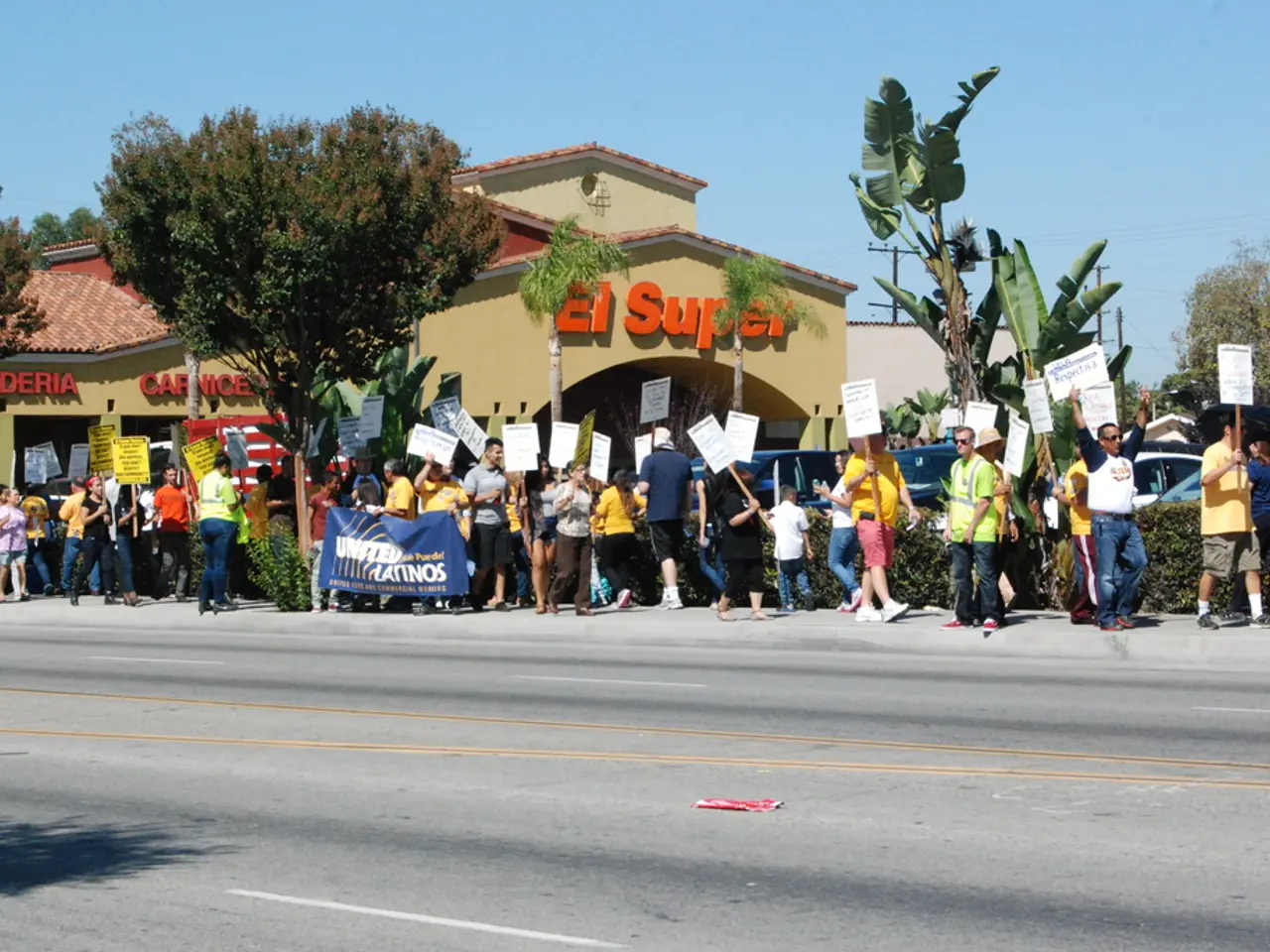Investment in Build-to-Rent properties remains viable, contrary to media portrayals
The UK's Private Rental Sector (PRS) is undergoing significant changes, with technology being utilised to build in areas previously overlooked, and a surge in activity among landlords selling their properties due to the prospect of rises in capital gains and inheritance tax. However, the specific measures that Keir Starmer's upcoming autumn 2025 budget will take to address the private rented sector or small private landlords remain unclear.
The Labour government, led by Starmer and Chancellor Rachel Reeves, is preparing to address a projected budget deficit exceeding £41 billion. Although earlier pledges ruled out increases in income tax, National Insurance, and VAT, recent statements from Starmer suggest that no explicit guarantees rule out tax hikes in these areas.
The tougher economic outlook, characterised by increased inflation, sluggish economic growth, rising unemployment, and increased business costs like a higher national living wage and recycling fees, may lead to tax adjustments impacting landlords indirectly or directly. Potential changes include changes to property-related taxes, rising business expenses or new fees, and tax increases on wealth or property holdings.
Small private landlords, who often have limited margins, could be affected by even modest tax increases or additional regulatory costs, which could impact rental yields and investment incentives.
Meanwhile, the PRS is seeing a shift in demographics, with a third of first-time buyers aged over 35, 20% between 35 and 44, and 13% over 44, according to Uswitch. This suggests a growing reliance on the PRS for housing.
The PRS is also seeing a rise in the number of former rental homes moving into the sales market, according to Rightmove, and demand remains strong and yields remain healthy in the rental properties sector.
In an effort to make renting more accessible, Legal and General has announced a deposit programme, partnering with major UK deposit schemes, to provide tenants with deposit alternatives and reduce move-in costs by £1,000. This programme also ensures landlords' properties are protected against potential damages or unpaid rent.
The use of technology in the PRS is not only making it more accessible but also saving time, money, and providing evidence of compliance. The sector has also seen a dramatic increase in Build to Rent schemes in recent years, with Keir Starmer expected to deliver Labour's autumn budget next month.
Despite the potential tax increases, industry experts like Marc Grundherr of Benham and Reeves believe that buy-to-let remains a strong investment, despite being another blow to those who provide vital housing stock. Renters are also staying in the PRS much longer, with individual tenancy lengths increasing.
The PRS is now targeting areas that don't traditionally offer a lot of rentals, further expanding its reach and importance in the UK's housing market. The charity Equality Trust found that 86% of people renting a property struggle to save money for a mortgage, highlighting the continued need for the PRS.
As we approach the autumn budget, small private landlords and the PRS as a whole will be closely watching for any specific measures that may affect them. More detailed policies are expected with the budget release later in the autumn.
[1] BBC News. (2022, August 1). Labour's 'biggest tax rise in a generation' to cut UK deficit. [online] Available at: https://www.bbc.co.uk/news/business-62481115
[2] The Guardian. (2022, August 27). Keir Starmer warns Labour may need to raise taxes to plug deficit. [online] Available at: https://www.theguardian.com/politics/2022/aug/27/keir-starmer-warns-labour-may-need-to-raise-taxes-to-plug-deficit
[3] The Telegraph. (2022, August 29). Keir Starmer hints at tax rises to fund Labour's spending plans. [online] Available at: https://www.telegraph.co.uk/politics/2022/08/29/keir-starmer-hints-tax-rises-fund-labours-spending-plans/
[4] The Independent. (2022, August 31). Keir Starmer's Labour government could raise taxes to address UK's £41bn budget deficit. [online] Available at: https://www.independent.co.uk/news/uk/politics/keir-starmer-labour-budget-deficit-taxes-b2159368.html
- The upcoming Labour budget, to be delivered by Keir Starmer in the autumn, may include tax increases that could indirectly or directly impact small private landlords, potentially affecting their rental yields and investment incentives.
- With the Labour government preparing to address a projected budget deficit exceeding £41 billion, the PRS, as a significant part of the UK's housing market, is closely watching for any specific measures that may affect them in the forthcoming budget, particularly regarding property-related taxes, business expenses, new fees, or tax increases on wealth and property holdings.







